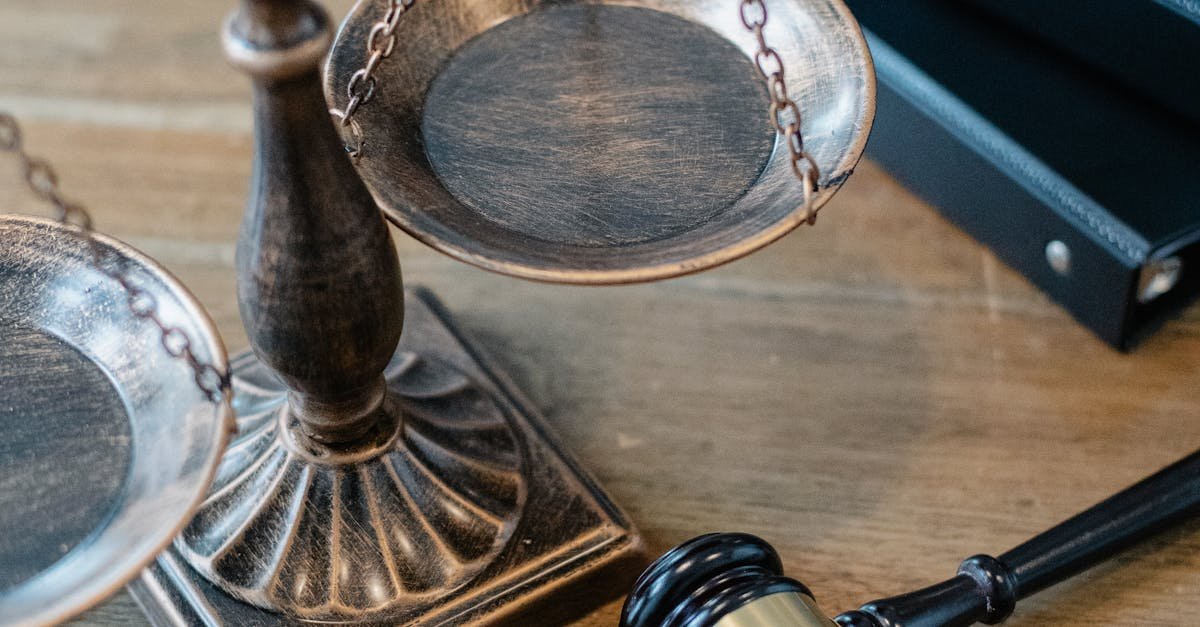
The Role of Negligence in Legal Malpractice
Negligence is a core element in legal malpractice claims. When an attorney fails to uphold the legal standards expected in their profession, it can lead to significant harm for clients. This failure may manifest as missed deadlines, inadequate representation, or failure to communicate crucial information. A malpractice lawyer often highlights how these negligent actions can directly influence the outcome of a case, ultimately impacting the client’s rights and interests.
To establish a case for legal malpractice, the burden of proof lies in demonstrating that the attorney’s negligence deviated from the accepted standards of care in the legal profession. This requires a thorough examination of the attorney-client relationship and the specific actions taken during a case. A malpractice lawyer typically gathers evidence to show how the attorney’s actions or inactions led to negative consequences for the client, which can be a complex process involving both legal and factual inquiries.
Analyzing Professional Responsibilities
Attorneys are held to high professional standards that dictate their duties to clients. These standards encompass a duty of care, which requires lawyers to act with the competence and skill expected of a reasonable attorney in similar circumstances. When an attorney fails to deliver this expected level of care, it can lead to errors that significantly impact a client’s case. Such oversights can range from missing critical deadlines to failing to properly investigate legal issues. Each of these missteps highlights the importance of thoroughness and diligence in legal practice.
In assessing professional responsibilities, a malpractice lawyer plays a critical role in identifying breaches of these duties. They evaluate the actions of attorneys to determine whether their conduct fell short of the established standards. If a violation is detected, the malpractice lawyer can provide advice on possible claims. This analysis not only assists clients seeking redress but also serves as a reminder for attorneys to uphold their obligations diligently.
Consequences of Legal Malpractice for Attorneys
Legal malpractice can significantly impact an attorney’s career and reputation. When a client files a claim against an attorney for legal malpractice, it often leads to scrutiny of the attorney’s professional conduct. A negative outcome can result in disciplinary actions from the state bar association, which may include suspension or disbarment. This can tarnish an attorney’s credibility in the legal community and hinder their ability to attract new clients.
Beyond professional repercussions, attorneys facing malpractice claims may also encounter substantial financial consequences. Legal fees related to defending a malpractice lawsuit can be exorbitant. If the attorney is found liable, they may be required to pay damages to the aggrieved client. In such cases, hiring a malpractice lawyer can help navigate the complexities of the legal process, although this adds another layer of expense to the situation.
Potential Legal and Financial Repercussions
Legal malpractice can result in severe consequences for attorneys, both legally and financially. When an attorney is found liable for malpractice, they may face disciplinary actions from state bar associations, including suspension or disbarment. In many cases, clients harmed by the attorney’s negligence may pursue claims for damages. These claims can lead to significant financial burdens on the lawyer if they are required to pay settlements or judgments awarded to the affected clients.
Additionally, the financial repercussions extend beyond the immediate legal costs. Attorneys may find their professional reputation tarnished, making it difficult to attract new clients or maintain existing relationships. This negative impact can lead to a decrease in income, increasing pressure to recover financially. Consulting a malpractice lawyer can help attorneys navigate the complexities of such claims and work towards mitigating the repercussions they may face.
How to File a Legal Malpractice Claim
Filing a legal malpractice claim begins with gathering evidence of the alleged negligence. This includes documentation of the attorney’s actions or inactions, as well as any correspondence related to the case. Clients should also keep detailed records of the outcomes impacted by the attorney’s conduct. Consulting with a malpractice lawyer can be advantageous at this stage, as they can offer guidance on the specifics that may strengthen the case. Maintaining organized and clear records will ease the process of demonstrating how the attorney’s performance fell short of accepted professional standards.
After collecting the necessary information, the next step involves submitting a formal claim. This might necessitate filing a complaint with the proper court, accompanied by the appropriate legal forms and any relevant documentation. A malpractice lawyer will assist in ensuring that all procedural requirements are met, potentially improving the likelihood of a successful claim. Depending on the jurisdiction, there may be specific statutes of limitations that dictate how quickly a lawsuit must be initiated, making timely action essential.
StepbyStep Process
Filing a legal malpractice claim involves several key steps to ensure that the case is solid and properly presented. The first step is to gather all relevant documentation, including contracts, communications, and case files. This information will form the backbone of your argument, demonstrating how the lawyer failed in their duties. Consulting with a malpractice lawyer is crucial at this stage to assess the strength of your case and to understand the legal standards that apply to legal malpractice.
Once you have compiled your evidence, your next step is to consult with a malpractice lawyer to evaluate your situation. They can help you determine whether the attorney’s actions fell below the accepted standard of care in the legal profession. If there are grounds for a claim, your lawyer will assist you in formally filing the complaint, which typically involves drafting and submitting legal documents. Properly navigating this process is essential, as it ensures that your claim is taken seriously and follows the necessary legal protocols.
FAQS
What is legal malpractice?
Legal malpractice occurs when an attorney fails to provide competent representation, resulting in harm or loss to their client. This can be due to negligence, breach of fiduciary duty, or failure to adhere to professional standards.
What are common examples of legal malpractice?
Common examples include missing important deadlines, failing to file documents, giving incorrect legal advice, and conflicts of interest that are not disclosed.
How can I determine if I have a legal malpractice case?
If you believe your attorney’s actions or inactions have harmed your case, you may have a legal malpractice claim. It’s essential to consult with another attorney who specializes in legal malpractice to evaluate your situation.
What are the consequences for attorneys found guilty of legal malpractice?
Attorneys found guilty of legal malpractice may face various repercussions, including financial liability to the affected client, disciplinary actions from the state bar, and potential damage to their professional reputation.
What steps should I take to file a legal malpractice claim?
To file a legal malpractice claim, you should gather relevant documentation, consult with an attorney experienced in malpractice cases, and follow the legal process, which typically involves filing a complaint, completing discovery, and potentially going to trial.




